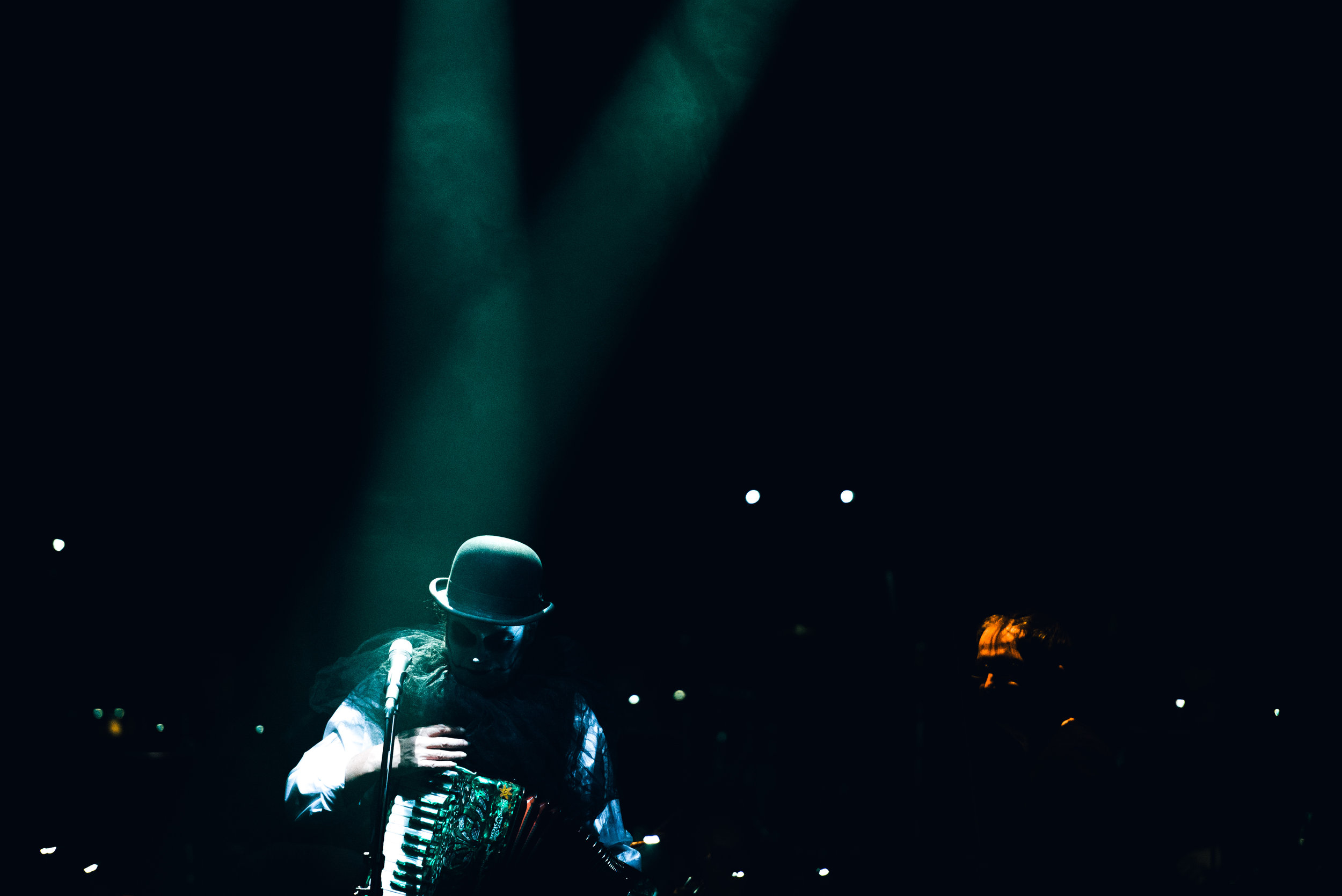DEVIL’S FAIRGROUND
London’s the Tiger Lillies are celebrating 30 years of their provocative brand of avant-garde punk-cabaret with their symphonic latest album, Devil’s Fairground (out 15 February). Themes of junkies, prostitutes and all forms of vice continue to make up the majority of their work, while frontman Martyn Jacques has a knack for finding beauty in the macabre and grotesque, like Poe, Lovecraft and Edward Gorey before him. The band have performed all over the world, making their way from humble beginnings busking in the streets and playing bar-rooms to performing in massive concert halls and opera houses. They’ve also shared bills with St. Vincent, John Cale, Patti Smith, David Byrne and many others, and have built a legion of devoted fans including film director Terry Gilliam, the late Robin Williams and Simpsons creator Matt Groening.
““That was just the beginning of the band. It was a magical time,” says Jacques. “The bars were full. There were so many squats and parties, booze and drugs - but no tourists. This record’s filled with the people I knew at the time. Lots of them are dead now. Heroin addicts and junkies.””
Devil’s Fairground takes the listener on a tour through the sordid underbelly of post-soviet Prague, where Jacques’s eye finds poetry in legless drunks, bored hookers and fatherless children. When the Tiger Lillies first began touring Europe in the early ‘90s, Prague was a place filled with exceptional hedonism. The Velvet Revolution had tossed out communism and separated Czechoslovakia into the Czech Republic and Slovakia without a drop of blood being spilt, but the lost years between communism and capitalism had left a vacuum and the Tiger Lillies spent their time there cavorting with the artists and freaks. The band returned to Prague in September 2018 to record Devil’s Fairground live with a full orchestra, channelling the band’s experiences in the city between the fall of the Soviet Union and the influx of Western tourists.
“★★★★ This production is definitely unique, with each song containing a narrative full of one emotion or the other: by the end of this entrancing experience, the audience had been exposed to the heights of joy and the depths of sorrow. Stripped of the visuals that permeate some of the band’s other productions, the magic and the mystery of The Tiger Lillies is brilliantly captured in this show, allowing the music and lyrics to shine, and shine radiantly.”
However, that debauchery and partying all came on the heels of extraordinary oppression - stories about which Jacques absorbed from friends and acquaintances and used as inspiration for Devil’s Fairground. Standout track “Free” is a klezmer-tinged gothic cabaret ballad that recounts the story of an outspoken Democrat under the Soviet Union who spent a decade in a Siberian prison camp for his beliefs, and the impact his absence had on his daughter. The harsh realities of Soviet life are unsettlingly juxtaposed with Jacques’s beautiful, flitting, airy falsetto and the band's cinematic orchestration.
One of Devil’s Fairground’s other notable cuts, “King of the Gutter”, is an appropriately sombre waltz about an alcoholic double-amputee nearing the end of his life in Prague, reflecting on the life of excess and vice that led him to presiding over the gutter from his wheelchair-throne.
These seedy character studies make Devil’s Fairground a fascinating snapshot of both post-Soviet Prague and the connections Jacques makes with people. He says, “I don’t want to write about ‘boy-meets-girl-and-everybody’s-happy’. I write about life on the street. I come from the streets. I’m not going to start writing about white middle class people. I’ve always had friends who were drunks, junkies and prostitutes - I’ve always been interested in people of character.”
The Tiger Lillies are Jacques (vocals, accordion, piano, uke), Adrian Stout (double bass, theremin, singing saw) and Jonas Golland (drums, percussion). Looking forward, there’s no end in sight for The Tiger Lillies.









